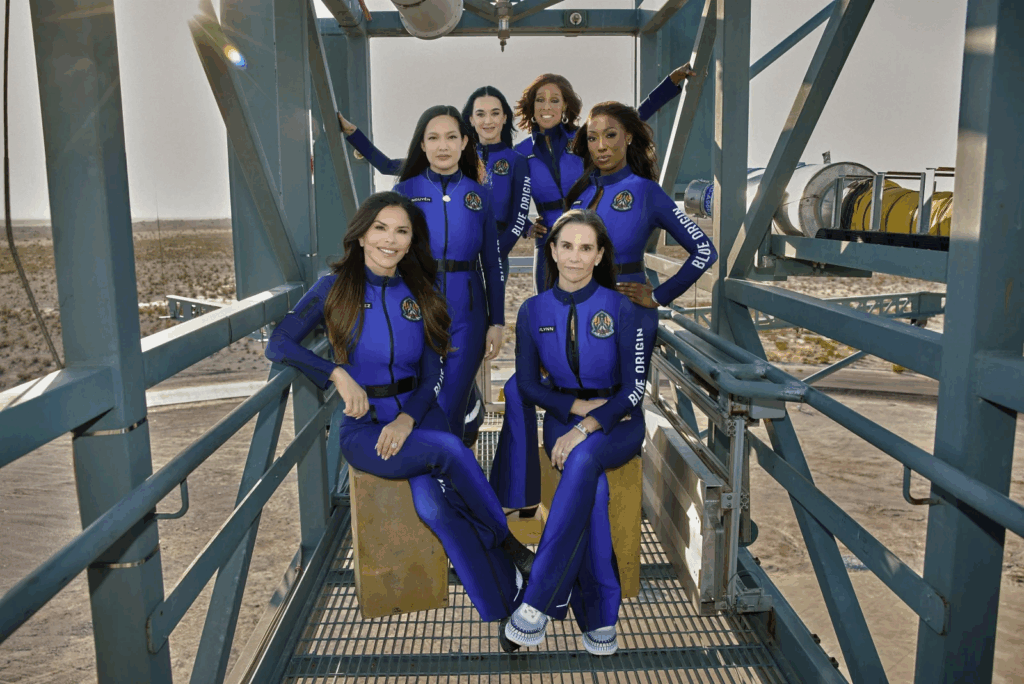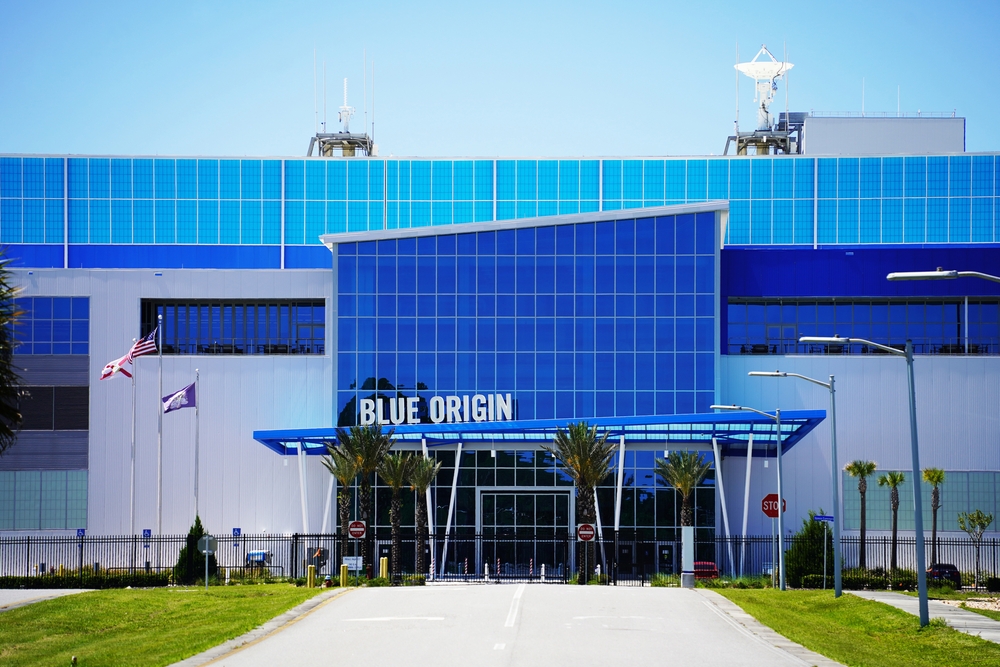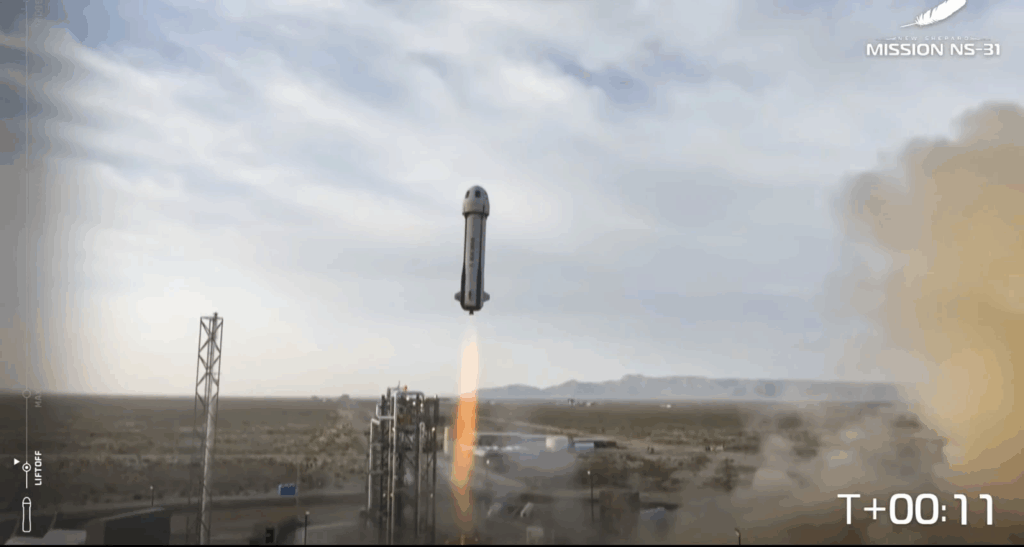The world watched closely as Blue Origin launched a new mission featuring a star-studded crew. Dubbed the all-female Blue Origin launch, the event made headlines not just for its impressive list of participants—including Katy Perry, Gayle King, and Olivia Wilde—but also for the controversy it sparked. While the flight was framed as a celebration of women’s achievements in space tourism, it quickly became a lightning rod for criticism. Environmental activists, scientists, and everyday observers voiced growing concerns about the true cost of such luxury spaceflights.
As climate change becomes an ever-pressing global issue, many questioned whether these symbolic moments are worth the environmental impact they leave behind. The excitement around the Blue Origin Launch soon shifted to debate, highlighting the complex intersection between technological progress, celebrity culture, and environmental responsibility.
Adding to the controversy was the timing of the launch. It occurred during a week when major climate reports warned of urgent action needed to combat rising temperatures. Critics argued that showcasing a lavish space journey felt particularly tone-deaf against the backdrop of worsening wildfires, floods, and global warming reports. They stressed that the optics of celebrities enjoying a zero-gravity joyride while communities faced climate disasters sent the wrong message. This sentiment added fuel to an already heated debate about the responsibilities of public figures in advocating for meaningful change.
Celebrities Take to the Skies Amid Environmental Concerns
On launch day, excitement buzzed through social media. Videos showed the stars laughing, waving, and floating inside the spacecraft. Blue Origin framed the flight as a historic moment for women in space tourism. However, the fanfare did not last long. Within hours, backlash flooded in. People questioned the necessity of sending celebrities into space purely for entertainment.

The biggest concern centered around the environmental footprint. Rocket launches are not clean. Even though Blue Origin uses reusable rockets, the emissions are still considerable. Experts warn that every launch releases carbon dioxide and black carbon directly into the upper atmosphere. This layer takes much longer to recover from pollution compared to lower levels. Scientists have emphasized that black carbon in the upper atmosphere can trap heat and contribute to global warming. Yet the Blue Origin Launch pressed ahead, showcasing luxury space travel at a time when many are calling for drastic carbon reductions.
Another point of contention was the perceived lack of purpose behind the flight. Unlike missions conducted by NASA or SpaceX, which often have scientific goals or satellite deployments, the all-female Blue Origin launch was viewed as a publicity stunt. Environmentalists stressed that while technological advances in spaceflight are impressive, frivolous space tourism undermines broader efforts to protect Earth’s delicate ecosystems. Critics called for better prioritization of resources toward combating pressing terrestrial issues rather than fueling a booming space tourism industry.
Hypocrisy Claims and Company Response
Outrage quickly spread online. Users posted memes, harsh critiques, and side-by-side photos of the celebrities at environmental events. Many accused them of “climate hypocrisy,” saying their participation in the all-female Blue Origin launch undermined their activism.
One viral post read, “Nothing says ‘save the planet’ like burning tons of fuel to take a selfie in space.” Another said, “Space tourism is the new private jet problem, but worse.” Comments like these flooded social feeds, keeping the controversy alive long after the rocket landed.
Facing mounting criticism, Blue Origin defended the mission. Company officials emphasized their commitment to reusable rocket technology. They claimed that reusing rockets significantly reduces the carbon footprint compared to traditional, one-use rockets.
However, environmental experts were quick to counter these points. Even reusable launches, they said, contribute to climate change. The energy needed for each flight remains immense, and the pollution released still lingers in the atmosphere. Some scientists argued that focusing on reusability alone does not address the broader environmental costs.

The Debate Over Luxury Space Travel
The Blue Origin Launch added fuel to an ongoing debate. As luxury space travel grows, so do the ethical questions surrounding it. Critics argue that space tourism caters to the ultra-wealthy while adding unnecessary stress to an already struggling planet.
Many wonder if these high-profile space trips are worth the environmental trade-offs. Others question whether companies like Blue Origin should focus more on scientific missions rather than offering joyrides to celebrities.
The all-female Blue Origin launch highlighted the cultural tension between technological achievement and environmental responsibility. It showed that while humanity can achieve incredible feats, those feats sometimes come at a high price.
Beyond environmental concerns, some experts worry about the normalization of casual space travel. They fear that as spaceflights become more accessible to the rich, society may overlook the cumulative toll on the planet. Others warn that glorifying space tourism distracts from urgent conversations about energy reform, conservation, and sustainability here on Earth. As dazzling as a trip to the stars may seem, the pressing challenges at home cannot afford to be ignored.

Final Thoughts
The Blue Origin Launch was meant to celebrate women in space travel. Instead, it opened a fierce conversation about celebrity privilege and environmental priorities. As space tourism continues to rise, companies and participants will face growing pressure. The world is watching, and many are demanding that future launches balance ambition with responsibility.
In the end, the all-female Blue Origin launch reminds us that no trip to the stars is free of consequences, especially here on Earth.
Read More: Bette Midler Explains Why She Sold Her Tesla, Labeling It a ‘Symbol of Racism and Greed’

